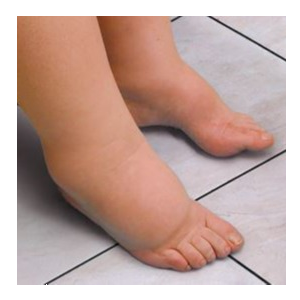Inflammation vs Swelling
Review our guide on the differences between inflammation vs. swelling, so you can understand how they impact your body differently.
Read More

Your doctor might be your strongest ally in finding appropriate treatment for your swelling. Consider making an appointment specifically to discuss your swelling rather than as part of another visit so that you have enough time to get the help you need.
Being prepared for your appointment can make all the difference. Any time you can direct your doctor to specific information you help them get a clear picture of what you’re experiencing. Important information to discuss includes:
It also helps to give your doctor an understanding of your specific concerns. What do you think might be happening? What type of outcomes are you hoping for? Some examples might include:
Your doctor may have suggestions for next steps. Whether or not that’s the case, it’s a good idea to have specific outcomes to ask about. For example:
By gathering data daily and learning more about how your condition fits different diagnosis and treatment profiles, you can make your doctor’s appointments more productive — and find the relief you need.
Review our guide on the differences between inflammation vs. swelling, so you can understand how they impact your body differently.
Read More
Review our guide on chronic venous insufficiency (CVI) to better understand the symptoms, causes, and treatment options to get the care you need.
Read More
The lymphatic system helps our body fight diseases and infections. Find out more about the lymphatic system and its functions in this guide.
Read More
Lymphatic circulation is a key part of the immune system. Learn more about the role of the lymphatic system in the body.
Read More
Call us at 1.800.575.1900